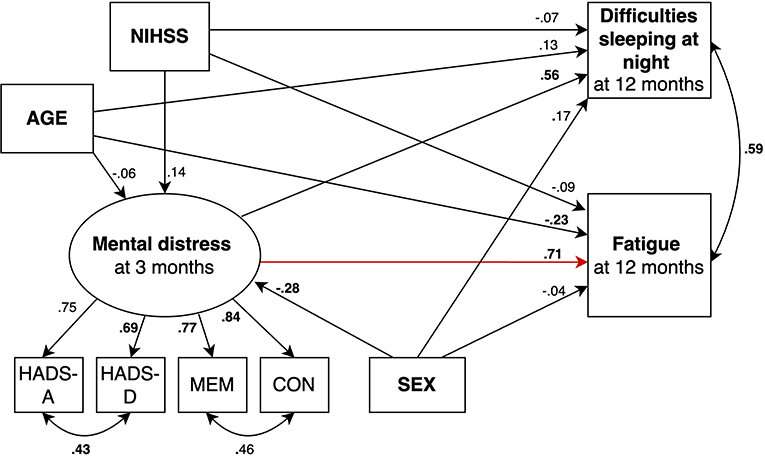This article has been reviewed according to Science X's editorial process and policies. Editors have highlighted the following attributes while ensuring the content's credibility:
fact-checked
peer-reviewed publication
trusted source
proofread
Scientists study increased fatigue and daytime sleep reported after ischemic stroke

Approximately 9,000 people are admitted to Norwegian hospitals with stroke each year. About half of these patients feel exhausted afterwards, and many patients sleep more during the day than before the stroke. These after-effects are challenging and significantly affect patients' everyday life.
However, we still have a limited understanding of which factors lead to increased fatigue and daytime sleep after stroke. Our research group therefore wanted to investigate whether cognitive and emotional complaints are related to increased fatigue and sleep during the day.
Our results were recently published in an article in the journal Frontiers in Neurology.
People with cognitive and emotional disorders struggle
Our analyses show that patients who report poorer memory and concentration three months following stroke have a higher risk of being more fatigued and sleeping more during the day at twelve months.
The same applies to patients who report major anxiety and depressive symptoms three months after the stroke.
Cognitive and emotional complaints are thus both important factors for increased daytime sleep and fatigue after a stroke. This finding was also evident when we took into account other factors such as age, sex, the severity of the stroke and quality of sleep at night, as well as their relationship to each other over time.
The study was carried out by collaborating researchers in the Vascular Diseases Research Group (VaD) at NTNU and researchers from the Department for Health Service Research (HØKH) at Akershus University Hospital.
Ramune Grambaite heads the group at NTNU. She is an associate professor in clinical neuropsychology and clinical manager of the Neuropsychological Outpatient Clinic at NTNU's Department of Psychology. Elisabeth Kliem is the Ph.D. candidate in the research group and the first author of this article.
We used data from NORSPOT, a study that was carried out at Akershus University Hospital between 2012 and 2013. In that study, stroke patients answered questionnaires three and twelve months after their stroke. The patient sample in our study had relatively mild strokes and had no known cognitive or emotional challenges before the stroke.
Important to follow up patients following stroke
Both cognitive and emotional problems are common after a stroke. Our results show the importance of following up on these complaints in the subacute phase after the stroke.
We can reduce the risk of increased fatigue and need for sleep in the long term if we manage to identify and treat stroke patients who struggle cognitively and emotionally.
More research needed
This study is an important step towards a better understanding of fatigue and increased need for sleep following a stroke. Cognitive and emotional problems after a stroke are often not detected in the routine follow-up, but have the potential to greatly affect the patient's everyday life.
We therefore hope to see more research undertaken in this field, as it can lead to improved diagnostics and treatment of patients in the long term.
More information: Elisabeth Kliem et al, Self-reported cognitive and psychiatric symptoms at 3 months predict single-item measures of fatigue and daytime sleep 12 months after ischemic stroke, Frontiers in Neurology (2022). DOI: 10.3389/fneur.2022.944586



















